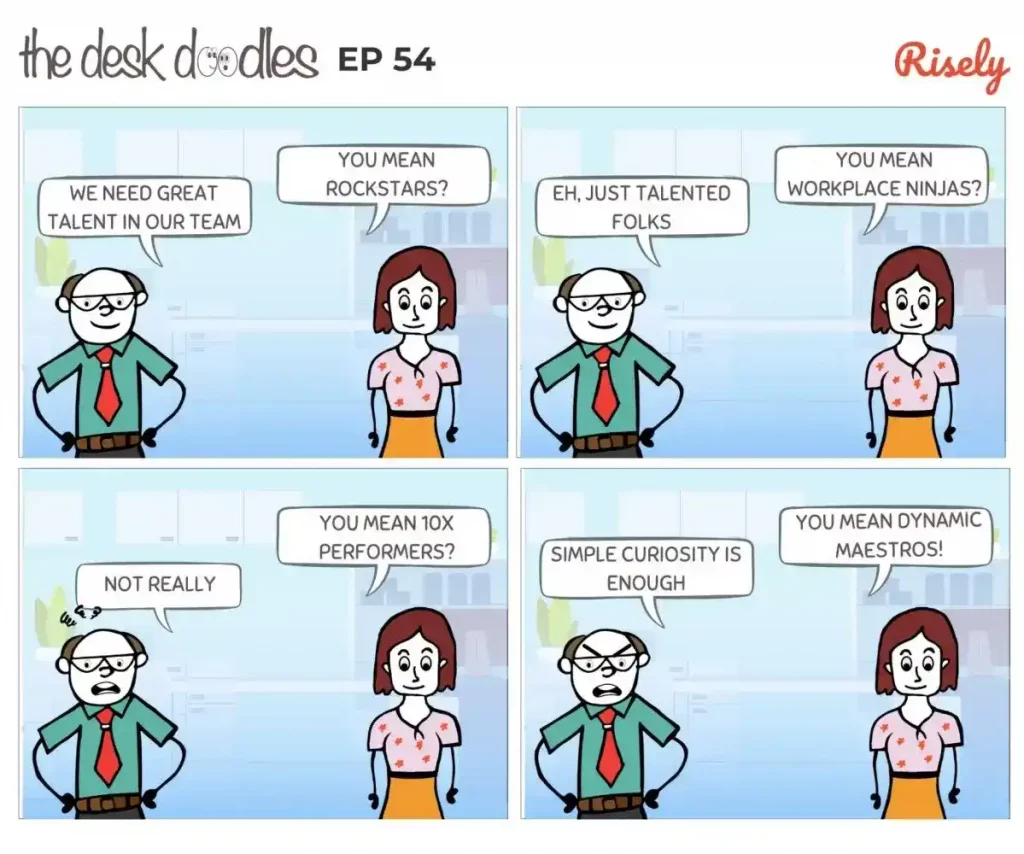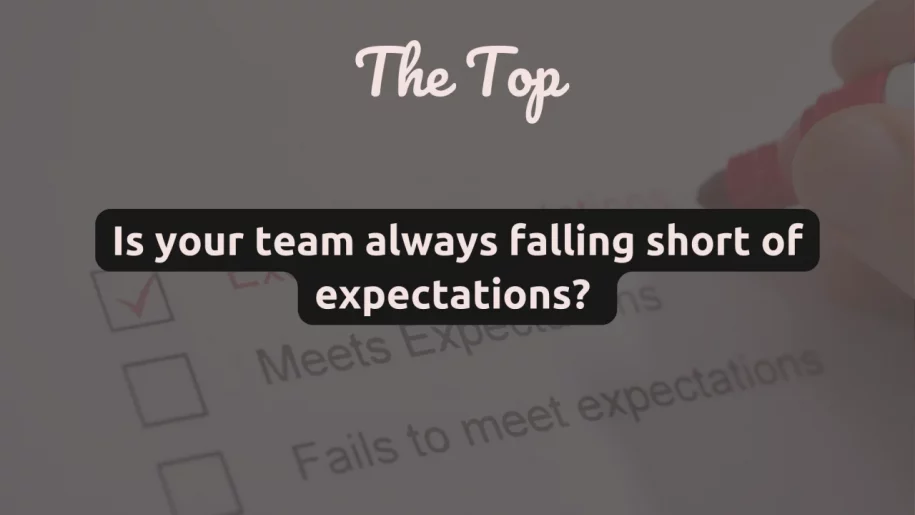Is your team always falling short of expectations?
Hey there, manager! If you’ve been here for a while, you’d know that expectation setting is one of the core areas a people manager needs to master. Why so? Because it defines the ideal behavior and work etiquette for your team members.
That’s the simplest way to put it. But there’s more to it. Setting expectations defines the way of life within a team. Thus, implicit guidance prevails at every point in time. Whenever your team has a concern or is stuck over a challenge, their expectations show how to proceed, even without explicitly mentioning how certain things should go.
Let’s try to visualize it 🗺️
Picture this: a junior of yours welcomes a new team member, but they are quite unsure of how to proceed. However, they don’t get stuck. Why’s that? Because they have seen you talk with new team members and guide them through day one at a new job.
Let’s take this further. Suppose you brought in a new team member but couldn’t give them enough time on day one. You had a packed day, things went haywire, and life happened—the new joiner felt confused and sat empty for a while. As a result, they did not get much value on their first day.
Your team has observed this, too. What does it lead them to conclude? In our best case, they think it’s alright to focus on critical tasks first and onboarding second. The next few new hires on the team then do not get the attention they might need for a successful start to their journey. In the worst case, they picture onboarding a new team member as non-essential.
What does this mean? 🤔
What did you gather from this? Expectations are set even when you aren’t actively trying to. Setting and managing expectations becomes a messy ordeal for most managers because they try to perpetuate an ideal version of themselves and their teams. But in action, things vary.
Just think, have you done everything ideally today? Some days are a solid 80% up to standards, but others barely hit halfway. Some days, your team might get stuck on a problem, or a meeting runs way longer than expected, pushing things out. And yet, expectations are always at 100%. Perfection is the demand.
Expectations matter, here’s why 😯
What’s the result of this? Your team feels confused and cheated. They are under stress to do everything right while others around them visibly do not. The precedent doesn’t match the norm. Because while they are made to listen and emulate every expectation out there, they don’t see you doing the same. Consequently, trust and interpersonal relationships take a hit.
It sounds a little dangerous. Are you then supposed to match every action to norms? Think before you take every step? Definitely not. It’ll put a lot more stress on you. Plus, that’s just unrealistic and unhealthy. So, what’s the way out?
It’s simple. Keep your expectations realistic. Your team members are probably handling similar issues as you, so they will get stuck too and have 80% days, too. The idea is to manage expectations smartly, not enforce them at every step possible.
Plus, try Risely’s expectation-setting assessment for free. It’ll give you and your team some much-needed peace of mind. 🚀
What’s happening at The Doodle office?


